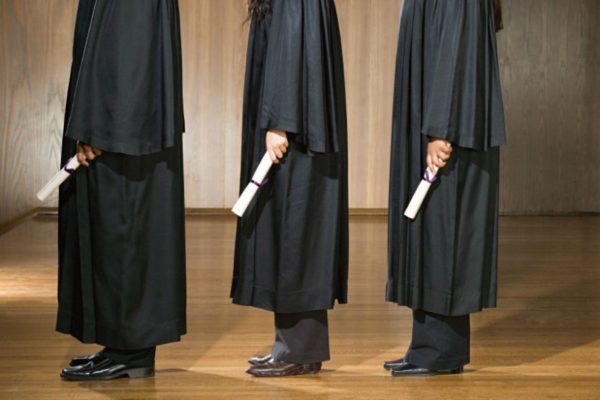When teachers wave a fond farewell to our students at the end of the school year, a few leave a lasting impression because they have worked so hard to get to a point where academic excellence is even possible. Our institutions have a hard time both measuring that kind of success and valuing it as it deserves.
Schools need to do more to create meaningful access to quality higher education for all Texans. This requires all of us to take a hard look at the ways that inequality is built into our colleges and universities.
For example, a student of mine once arrived late to an exam, wearing a uniform from one of her three jobs. She was so tired from her work schedule that she fell asleep twice during the 50-minute test. Each time I woke her, she apologized for dozing off and got right back to work. To me, that student succeeded simply by completing her exam, but that kind of success is not documented on a transcript. I don’t remember the student’s name, or what grade she earned in the course. But years later, I remember her hard work and determination.
What might have prevented this situation from happening in the first place? Money. Students are increasingly paying the state’s share of public university costs. For example, 30 years ago, state appropriations covered 47 percent of The University of Texas at Austin’s expenses, and tuition revenues covered 5 percent. Today, tuition (21 percent) and state revenues (23 percent) are approximately equal sources of university income.
It’s no wonder that many students who are juggling multiple jobs are more like workers taking classes on the side than students.
These financial pressures result in student bodies at some Texas public universities that are much wealthier than the state as a whole. A 2017 study found that the median family income at UT Austin is more than $120,000, when the state median income was around $56,000. The “7 percent rule” guarantees outstanding students from across the state a chance to enroll at UT Austin, but it does not help them to pay their tuition once they arrive. At Texas A&M, the median income is a whopping $130,000.
It doesn’t have to be that way. The University of Houston’s median family income of $58,000 is in line with the state average. At The University of Texas at El Paso, the median income is just $37,000. And graduates of these schools go on to thrive. One-third of UH graduates move up at least two income quintiles. Nearly 40 percent of UTEP graduates make that jump. For these students, and for our state, college is a great deal.
Limited resources mean difficult choices, not only about paying for college but also about who gets admitted. Colleges can enroll only so many students, and people disagree about what it means to be a “qualified” applicant. Many would say test scores and good grades. They would not see my exhausted student’s ability to juggle her demanding schedule as a qualification at all.
One of the most important and difficult things we can do to level the educational playing field is to abandon the idea that there is a single definition of “qualified” for college. Grades and test scores are easy to measure, but they depend as much on teachers and parents as on the students themselves. Measuring other relevant skills, like my student’s persistence, is difficult and hotly debated. What should we look for? How do we measure it?
College admissions processes are a good start. Admissions offices across the country cite the importance of finding applicants where they live. In Texas, it is expensive and time-consuming to travel to the distant parts of the state where college may be a daunting and unfamiliar concept to most students. But for many, the road to college begins with someone who says, “You can go to college. I did it and you can too.”
Perhaps most important of all, we ourselves need to support those processes and value the student bodies that they create. When the new school year begins in the fall, students will bring a wide range of talents, skills and needs to their studies. And that enriches us all.
Deborah Beck is an associate professor of classics at The University of Texas at Austin.
A version of this op-ed appeared in the San Antonio Express News, Austin American Statesman and the Waco Tribune Herald.
To view more op-eds from Texas Perspectives, click here.
Like us on Facebook.




